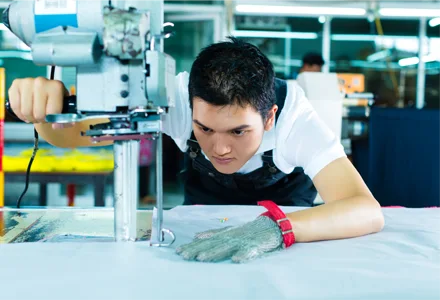Embracing Circular Fashion: A Sustainable Solution for the Apparel Industry
by Silky Prajapati
In today’s fast-paced and ever-changing fashion landscape, the rise of fast fashion has dominated the industry. Fast fashion, characterised by its rapid production, low prices, and disposable nature, has had profound environmental and social consequences. However, the time has come for brands to recognise the urgency of embracing circular fashion—a sustainable alternative that reduces waste, promotes responsible practices and aligns with evolving consumer values.
- Environmental Imperative:
The fast fashion industry places immense strain on the environment. Its production processes consume vast amounts of natural resources, contribute to water pollution and release substantial greenhouse gas emissions. In contrast, circular fashion focuses on resource efficiency, waste reduction, and sustainable production and consumption practices. By adopting circularity, brands can minimise their environmental footprint and help mitigate the damaging impact of the fashion industry on our planet.
Fast fashion’s “buy-and-discard” culture has resulted in a staggering amount of textile waste. Clothing items are frequently disposed of after minimal use, ending up in overflowing landfills or being incinerated. Circular fashion disrupts this cycle by prioritizing strategies such as recycling, upcycling, and clothing rental services. Through these practices, brands can extend the lifespan of garments, reduce textile waste and create a more sustainable and circular system.
- Ethical and Social Responsibility:
Fast fashion has often been associated with exploitative labour practices, including low wages, long hours, and unsafe working conditions. Circular fashion, on the other hand, advocates for responsible sourcing and fair treatment of workers across the supply chain. By embracing circularity, brands can ensure ethical and social responsibility by partnering with suppliers and manufacturers that prioritise workers’ rights, fair wages and safe working environments. This shift promotes a more equitable and inclusive fashion industry.
- Meeting Consumer Demand:
Consumers today are more conscious and informed about the environmental and social impact of their purchasing choices. They are increasingly demanding sustainable options and transparency from brands. Embracing circular fashion allows brands to cater to these evolving consumer preferences and tap into a growing market segment that values sustainability and responsible practices. By aligning with consumer values, brands can build stronger connections, foster loyalty, and thrive in a competitive market.
- Driving Innovation and Competitive Advantage:
Transitioning to circular fashion requires brands to embrace innovation and adopt new business models. By prioritizing circularity, brands can differentiate themselves in the market and gain a competitive advantage. They can explore sustainable materials, invest in recycling technologies, and collaborate with stakeholders to drive innovation across the value chain. This focus on sustainability not only positions brands as industry leaders but also encourages others to follow suit, driving collective change.
- Navigating the Regulatory Landscape:
Governments and regulatory bodies worldwide are recognising the urgent need to address the environmental impact of the fashion industry. They are implementing regulations and initiatives to promote sustainability and circularity. By proactively embracing circular fashion, brands can stay ahead of regulatory requirements, demonstrate their commitment to sustainability, and contribute to positive industry transformation. Compliance with regulations showcases brands’ dedication to responsible practices and strengthens their reputation among consumers and stakeholders.
Conclusion:
The fast fashion model has proven to be detrimental to the environment, workers, and the long-term viability of the fashion industry. The shift towards circular fashion offers a compelling solution. Embracing circularity enables brands to reduce their environmental footprint, promote ethical and responsible practices, cater to evolving consumer demands, drive innovation, and navigate the changing regulatory landscape. By bidding farewell to fast fashion and embracing circular fashion, brands can play a pivotal role in creating a more sustainable and responsible future for the fashion industry—one that values the planet, the people.

Fabric is Fundamental to Fashion Manufacturing’s Fortunes

7 tips for better Fabric Cutting Room Productivity

Smart fabric buying: Necessary steps and challenges
All Blog Categories
- Fabric Optimisation
- Sustainability
- Corporate
- Design and Develop
- Method Time Cost Optimisation
- Production Planning
- Shop floor execution
- Supply Chain Solutions
- Videos
